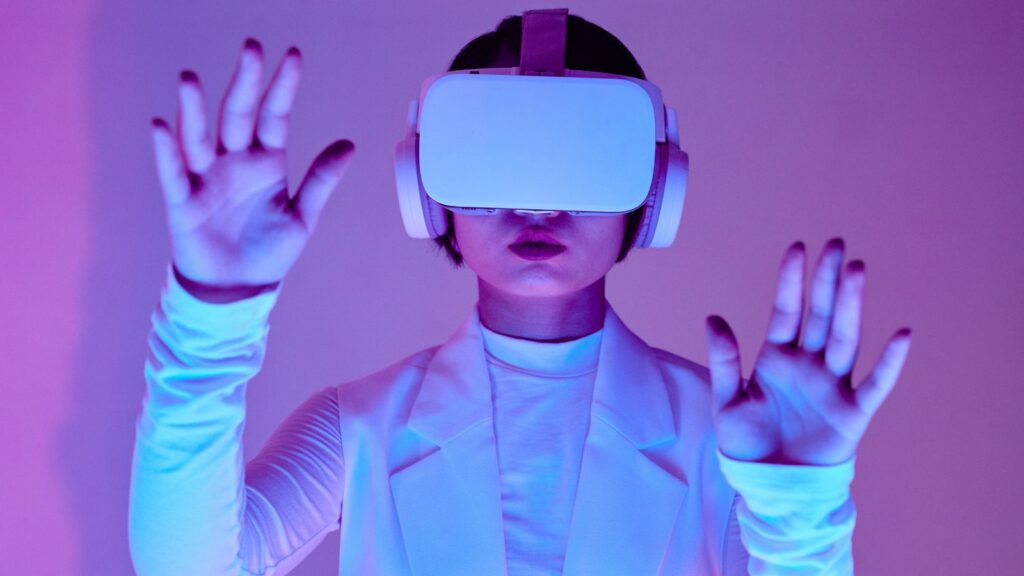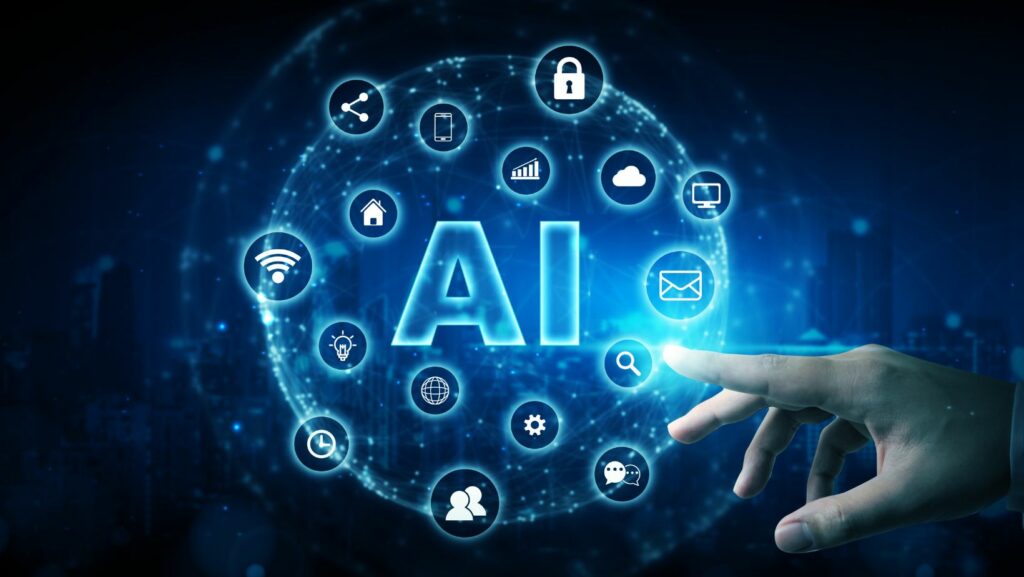Virtual reality (VR) gaming has already proven to be a revolutionary leap forward in interactive entertainment, creating fully immersive worlds where players can feel as though they are physically part of the game. However, while the technology has made remarkable strides, there are still some key areas where it can be improved—particularly in terms of game dynamics, personalization, and interaction. This is where artificial intelligence (AI) comes into play.
AI has already made its mark in various aspects of technology, from voice assistants to autonomous vehicles. However, its integration into the VR gaming world is still in its infancy. By combining the immersive qualities of VR with AI-driven systems, developers can create richer, more dynamic, and personalized experiences for players. In this article, we will explore how AI is enhancing VR gaming and its potential to transform virtual environments in ways that were previously thought impossible.
Creating Dynamic Game Worlds With AI
One of the most exciting ways AI can improve VR gaming is through the creation of dynamic, responsive game worlds. Traditionally, VR games have used scripted interactions where the environment reacts in predetermined ways to the player’s actions. For example, if a player opens a door or picks up an object, the game triggers a series of preprogrammed responses. While this creates a sense of interactivity, it is still limited in its ability to provide truly adaptive environments.
AI can significantly enhance this experience by enabling game worlds to evolve based on the player’s actions in real-time. Imagine a VR game where the virtual environment changes dynamically, adjusting to the player’s decisions, behaviors, or even emotional state. AI-driven algorithms can analyze the player’s actions and adjust the game world accordingly, whether by changing the storyline, altering NPC (non-playable character) behavior, or modifying environmental factors like weather, time of day, or the presence of enemies.
In a game like this, no two playthroughs would be the same. The environment could react to how a player engages with the game, making each experience feel unique and personal. This would result in a much more immersive experience where players truly feel as though they are influencing the world around them. Additionally, AI could be used to track and predict player behavior, creating more intelligent game mechanics that learn from and adapt to individual playstyles.

Personalized Game Experiences
Another area where AI can significantly enhance VR gaming is in the personalization of the experience. Currently, VR games typically offer a one-size-fits-all approach, where everyone experiences the game in the same way. However, by using AI, developers can tailor the game’s challenges, difficulty level, and narrative to suit each player individually.
For example, AI could analyze a player’s skill level and adapt the game’s challenges to match their abilities. In a VR combat game, if a player is struggling with a particular section, the AI could adjust the enemy difficulty, provide hints, or create opportunities for the player to learn and improve. Conversely, if a player is breezing through the game, the AI could increase the difficulty to keep the experience engaging and challenging. This type of dynamic difficulty adjustment would allow for a smoother and more enjoyable experience for players of all skill levels.
Moreover, AI could help personalize the narrative elements of the game. In role-playing games (RPGs), where choices often influence the outcome of the story, AI could be used to track and react to a player’s decisions, tailoring the storyline to reflect their moral compass or preferences. For example, a player who consistently chooses to be a “good guy” could see the narrative unfold in a more heroic light, while someone who favors darker choices might see a story that reflects their more villainous inclinations.
Intelligent NPCs: Bringing Realism To Life
AI’s role in VR gaming is not just limited to the environment—it can also enhance interactions with non-playable characters (NPCs). Traditionally, NPCs in games have followed scripted behavior patterns, often appearing lifeless or robotic. They might give players quests or interact with them, but their responses are limited and predictable.
With the integration of AI, NPCs can become far more realistic. Machine learning and natural language processing technologies allow NPCs to “learn” from interactions with players and adjust their behavior accordingly. This means that players can engage in conversations with NPCs that feel far more genuine, with characters that remember past interactions, adjust their attitudes, and react to player choices in a meaningful way.
For example, an NPC who has been treated with kindness in one interaction might offer help later in the game, while one who has been ignored or antagonized could become hostile or refuse assistance. The more complex the AI behind these characters, the more authentic their behavior will feel, which can dramatically improve the immersive quality of the game.
AI-Powered Immersive Experiences: A Real-World Example
In some modern VR games, AI has already begun to show its potential for creating more immersive experiences. Games like Star Trek: Bridge Crew and The Walking Dead: Saints & Sinners utilize AI to power their NPCs and create more dynamic, responsive worlds. In these games, AI-driven characters interact with players in ways that are much more fluid than traditional scripted events.
Moreover, AI is helping developers optimize virtual environments for better performance and realism. In VR games, the processing power required to render detailed worlds can be immense. AI-powered algorithms can optimize these environments in real time, adjusting the graphical fidelity to ensure smooth performance without sacrificing visual quality. This ensures that players experience high-quality, immersive graphics without any noticeable lag or interruptions.

How AI Could Innovate Beyond Gaming
While AI’s impact on VR gaming is still evolving, the broader potential of AI is evident in industries far beyond gaming. For instance, AI is already being used to improve live streaming and virtual events, such as the Big Baller Live Results. AI can help streamline broadcasting, ensuring better user engagement, smarter content recommendations, and enhanced viewer experience by analyzing live interactions and player data.
As AI continues to evolve, its use in VR gaming could mirror advancements seen in live streaming and sports broadcasting, creating entirely new forms of interactivity and engagement in virtual environments.
Conclusion
AI’s integration into VR gaming holds immense promise, offering the potential to create more dynamic, personalized, and immersive experiences. Whether it’s through intelligent NPCs, adaptive game worlds, or tailored challenges, the combination of AI and VR can create a gaming environment that feels alive and responsive in ways that traditional games cannot. As developers continue to experiment and innovate, we can expect to see even more groundbreaking advancements that will make VR gaming more engaging and accessible than ever before.
As VR technology becomes more mainstream, AI will undoubtedly play a key role in shaping the future of interactive entertainment, creating experiences that are smarter, more engaging, and infinitely more personalized.



